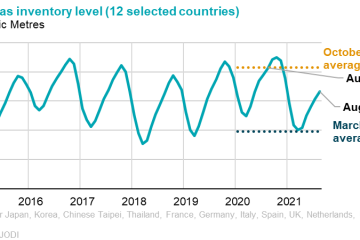BP’s Commitment to Sustainable Energy Solutions

Introduction
The transition from fossil fuels to sustainable energy is essential in combating climate change and ensuring a greener future for generations to come. BP, one of the world’s leading oil and gas companies, has acknowledged this pressing issue and is actively reshaping its vision towards sustainability and renewable energy sources. The relevance of BP’s initiatives sheds light on corporate responsibility in the energy sector and the global movement towards a sustainable energy paradigm.
Recent Initiatives by BP
Recently, BP has announced several key initiatives aimed at reducing carbon emissions and investing in renewable energy technologies. In August 2023, the company revealed its plan to achieve net-zero emissions by 2050, aligning its strategy with the goals set in the Paris Agreement. This ambitious target includes shifting nearly 40% of its capital expenditures to low-carbon initiatives by 2025, thus emphasizing BP’s commitment to responsible energy production.
Furthermore, BP is significantly investing in solar and wind energy projects. The company has launched a partnership worth $1.5 billion with multiple firms to develop a large offshore wind farm off the coast of Scotland, which is expected to generate enough energy to power over 1 million homes. This project reflects BP’s strategy to diversify its energy portfolio and aims to contribute significantly to the UK’s renewable energy capacity.
Impact on the Industry
BP’s transition towards greener energy aligns with the growing trend among major energy companies to prioritize sustainability. Peers like Shell and TotalEnergies are also implementing aggressive sustainability goals, leading to a more competitive and environmentally conscious market. These actions may encourage smaller companies in the energy sector to follow suit, furthering the pace of global energy transformation.
Challenges Ahead
Despite these positive developments, BP faces numerous challenges in its transition. The company’s substantial investment in fossil fuels poses risks amid the global shift towards sustainability. Additionally, public perception and regulatory pressures are high, demanding accountability from major oil corporations. The volatility of renewable energy markets may hinder BP’s projected goals if not handled with strategic foresight.
Conclusion
BP’s journey towards a sustainable energy future is a significant step in response to the urgent call for action against climate change. As the company navigates its ambitious goal of net-zero emissions by 2050, its impact will resonate not only within the energy sector but also among consumers and stakeholders at large. The industry is watching closely to see how BP adapts to new market dynamics and leverages its established capabilities for a more sustainable world. The success of BP’s initiatives may set a precedent and encourage further investment in renewable energy, illustrating the pivotal role that energy companies can play in shaping our planet’s future.









